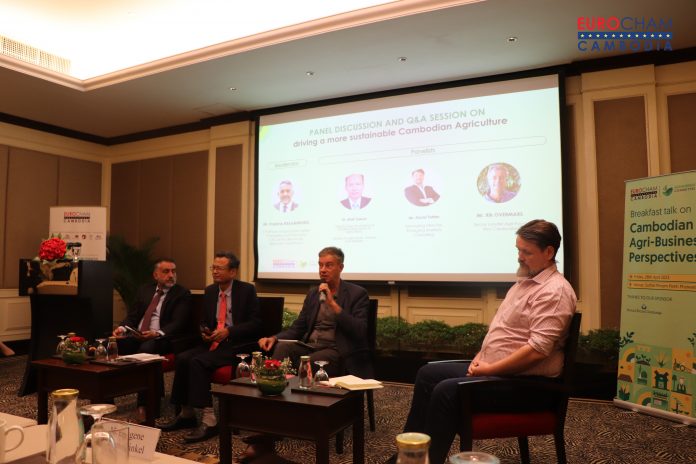Vijian Paramasivam
At the EuroCham Cambodia Agri-Business Talk, experts emphasized the importance of modernizing Cambodia’s agriculture sector, which employs about three million people and contributed more than 24% to the nation’s GDP in 2021.
The sector faces challenges from rural-urban migration, labor scarcity, rising input costs, and private investor fatigue. It was agreed that there is vast untapped potential in the sector, but conventional farming practices and a lack of private sector involvement are hampering growth.
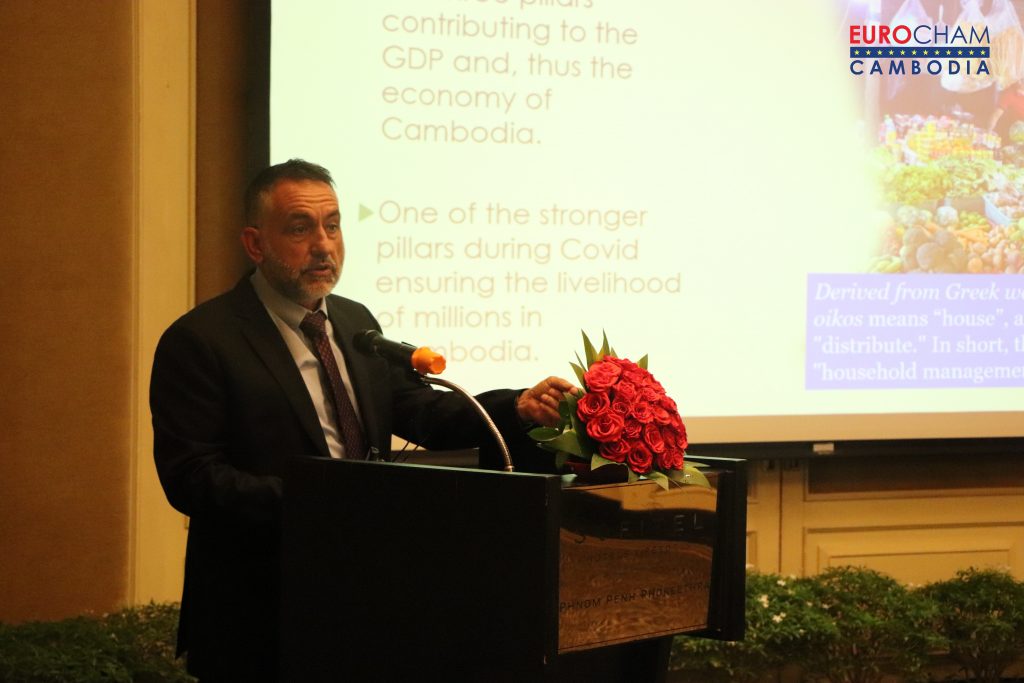
EuroCham Cambodia’s Agribusiness Committee Chairman, Eugene Kraamwinkel, emphasized the importance of modernizing the sector during the event: “If we want world-class products for Cambodia, we need to teach people how to produce world-class products.”
Read more: Time is ripe for investment in Cambodian agriculture
“We need to introduce standards and practices for product cultivation, resource optimization, and labor replacement technology. We need to teach our farmers, train the staff, and educate communities. This is the only way we can go forward,” he added.
The importance of private investment
Dr. Mak Soeun, Deputy Director of the General Directorate of Agriculture at the Ministry of Agriculture, Forestry and Fisheries, spoke at the EuroCham event about the importance of private investment for developing the sector: “Cambodia has a good opportunity to develop sustainable agriculture production because there is an abundance of land and bio-diversity. We have access to technology, and there is peace and social security in the country.”
“But now we are not exporting final (finished) products, mainly raw materials are exported. That is the reason why we need private investment (to develop the sector). Our focus is to modernize our farming, commercialize the value chain, and make the agriculture sector resilient and sustainable,” he added.
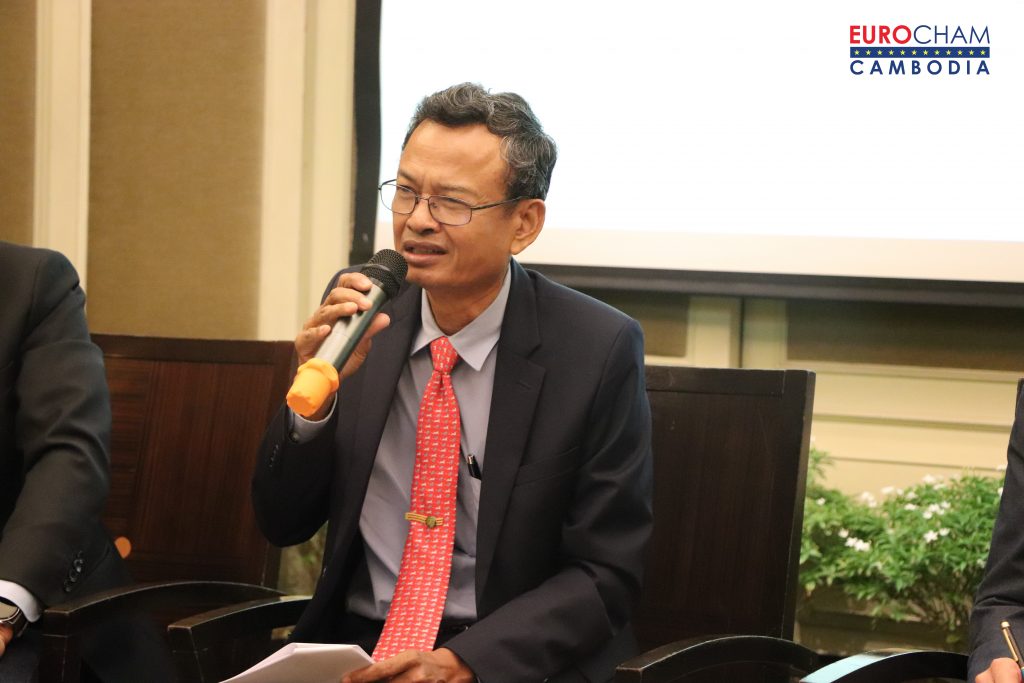
The government’s Agriculture Development Policy 2021-2030, which was discussed at the event, outlines plans to modernize the sector through modern rice cultivation, the deployment of drones, smart irrigation, less labor-intensive farming, and indoor cultivation. The aim is to create a sustainable, competitive, and environmentally resilient sector that can help improve the economic status of the farming community.
Business model innovation crucial
David Totten, Managing Director of Emerging Markets Consulting, stressed the need for increased capital input and business model innovation during his speech at the EuroCham Agri-Business Event: “Technical adoption is quite low. We need to increase capital input so farmers can be more productive.”
Read more: Kamya AgriTrade Pioneers Organic Cashew Nut Processing and Export in Cambodia
“Farmers can use mechanization for harvesting rather than doing it manually. We also need business model innovation, not just the availability of technology, to promote sustainable agriculture,” he added.
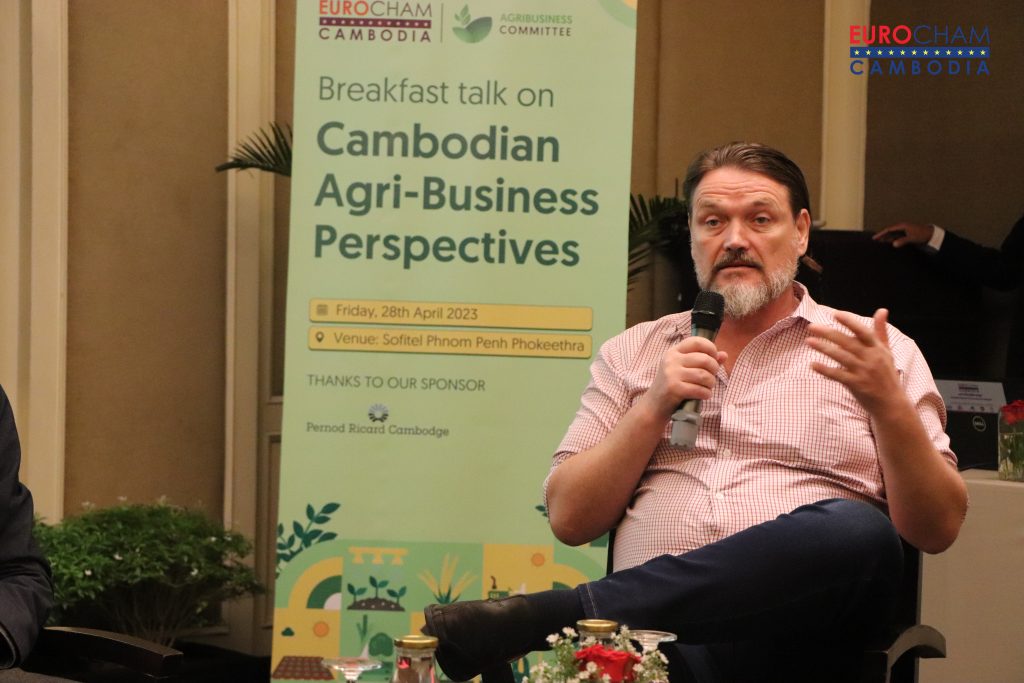
The Cambodian government is working to improve farming and raise profitability through the use of digital technologies. In 2021, the Ministry of Agriculture, Forestry and Fisheries launched the “CamAgriMarket” mobile app, allowing farmers to showcase their products to buyers and source market information.
The “Chamka app” was also introduced to help farmers monitor their cultivation processes to grow safe and healthy vegetables.
Producing high-yielding rice varieties
Additionally, food scientists are conducting extensive research to produce high-yielding rice varieties. After nine years of research, the Cambodian Agricultural Research and Development Institute launched a new fragrant rice variety, “Champei Sar 70,” earlier this year.
This variety, tolerant to harsh climatic conditions, can be grown two or three times a year and produces yields of 4.5 tonnes per hectare. Some cassava growers are experimenting with drones to reduce costs and improve yield, while others are using unmanned aerial vehicles to spray pesticides.
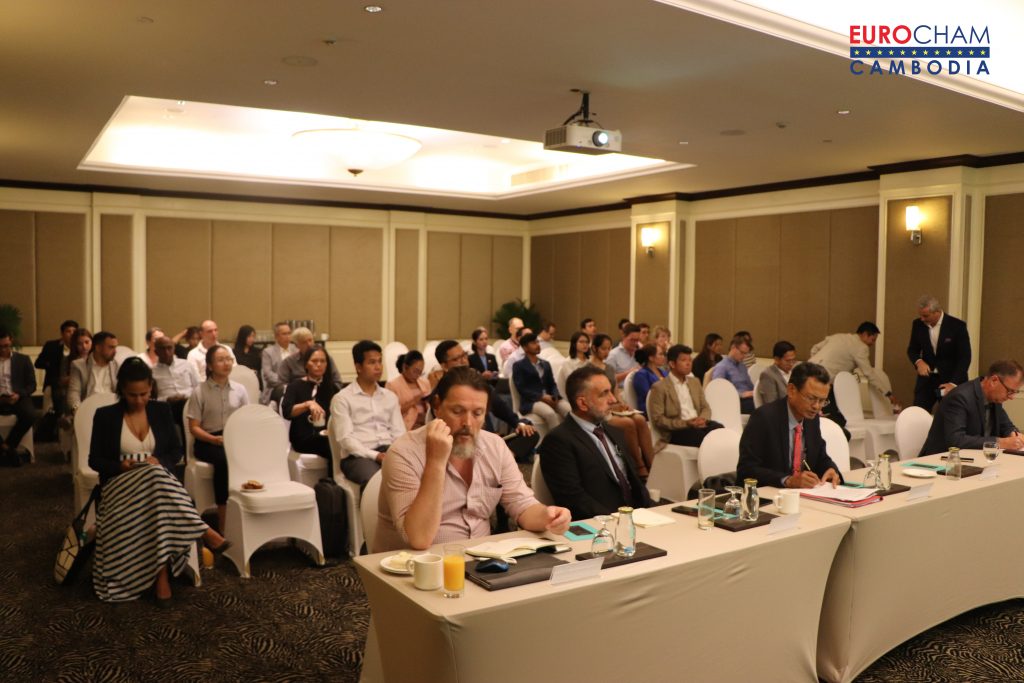
These efforts, discussed at the EuroCham Cambodia Agri-Business Event, demonstrate Cambodia’s commitment to modernizing its critical agriculture sector and ensuring food security for the nation. With mechanization and private investment, Cambodia aims to become a “rice basket” and continue


